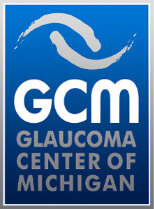There are many variables to consider once the decision has been made that cataract surgery is indicated to improve your vision. The three main areas where costs are incurred are: facility costs (ASC or hospital), surgeon fees, and special implants (premium IOL’s).
Facility Costs
Cataract surgery is performed as an outpatient at either a hospital or an ASC (ambulatory surgery center). There is an approved amount that insurance covers for surgery, and thus it is important that your surgeon’s staff makes certain that you’ll be having your operation at an approved facility which accepts your insurance. There are substantial differences in cost, with ASC’s being reimbursed at a much lower rate than hospitals. To use examples in the state of Michigan for patients with Medicare, a hospital will be paid $2000 for a cataract procedure while an ASC is paid $949. Most insurance, including, Medicare, cover 80% of allowable costs. Patients secondary insurance may cover the remaining 20%, but if not the balance or any deductibles and/or copays will be the patients responsibility. Both facilities must achieve the same high levels of accreditation and quality, so unless there is some specific need for a patient to be at a hospital (i.e. general anesthesia or multiple severe coexisting medical problems), there is a significant cost saving to having surgery at an ASC. Facility charges also include anesthesia services, with those services being allowable under a patient’s insurance and billed directly to the patient.
Surgeon Fees
Surgery performed for cataract is a medical condition that is covered by insurance. As with facility fees, it is important to make certain that your surgeon participates in your insurance plan and accepts their allowable amount. The surgeon’s fee is identical regardless of the facility where the surgery is performed. As with facility fees, your primary insurance typically will cover 80% of the allowable fee, with the remaining 20% either going to secondary insurance or out of pocket cost. Cataract surgery involves removal of the body’s cloudy lens with the placement of a lens implant (IOL). Insurance companies consider their standard to be that patients will require the use of eyeglasses after surgery. It is possible for modern cataract surgeons to correct an eye’s astigmatism or presbyopia, so that minimal or no eyeglasses are required after surgery. The additional work required to achieve this is not covered by insurance (either Medicare or other commercial insurance companies), and becomes a financial cost for the patient. This is very similar to the situation with refractive surgery such as Lasik, where patients must pay out of pocket for surgery. The costs involved depend upon the individual patients needs, the required procedure, and vary significantly from one physician’s office to another as well as in different geographic areas of the country. In general, these addition costs range from $500 to $2500 per eye in different parts of the country. Examples of procedures that surgeons will perform in these situations include LRI (limbal relaxing incisions), incision modification (size or axis), implant axis centering, or femtosecond laser incisions (LenSx laser).
Premium IOL
Premium IOL’s is the term used to describe implants that have special functions to allow a patient to see well with minimal or no need for glasses. Standard implants, called monofocal IOLs, are fully covered by insurance and focus light at one distance. If both of a patient’s eyes have no astigmatism and have monofocal IOL’s set to distance, a patient will have good far away vision but will require eyeglasses for reading or computer use. Many patients have worn eyeglasses for years and are very happy with this approach and do not object to the need to wear glasses after surgery. Some patients are a candidate for monovision, where one eye is set to see at distance and the other eye is set to near. Not all patients, however, can have this approach and your surgeon can discuss this option with you. Astigmatism describes the curvature of the cornea where the eye is oblong in shape instead of being spherical. The analogy is the comparison between the shape of a football and a basketball, with the football having a large amount of astigmatism and the basketball having none. Correction of a patient’s astigmatism is necessary to allow good vision without glasses. A special IOL known as a toric implant is used to correct this problem (http://www.reclaimyourvision.com/Cataract/acrysof-iq-toric-iols.aspx). Toric implants are not covered by insurance and require out of pocket payments. These costs are paid directly to the facility (ASC or hospital) and are in addition to the surgeon fees discussed above. The facility charges vary and to give examples in our state of Michigan range from $325 at Eye Surgery Center of Michigan (http://www.eyesurgerycentermi.com) to $495 at major hospitals in Southeastern Michigan for the exact same lens. Presbyopia describes the condition that occurs as we progressively lose the ability to focus at an object at near (i.e. reading or computer) with age. This occurs progressively for most people in their forties, so that reading glasses or bifocals are required. Presbyopia correcting IOL’s are the other type of premium IOL that give cataract surgery patients the ability to focus at different distances, thus reducing or eliminating the need for eyeglasses. Your surgeon will discuss with you if you are a candidate for these implants as well as which is preferred for your needs. The main lenses available in the USA include the ReSTOR lens (www.reclaimyourvision.com/Cataract/acrysof-iq-restor-iol.aspx), AMO ReZOOM lens (www.rezoomiol.com) , Technis multifocal (http://www.tecnismultifocal.com), and Bausch & Lomb Crystalens (www.crystalens.com). As with toric implants, facility charges vary, with examples being Eye Surgery Center of Michigan (ReSTOR $800) to major Michigan hospitals (ReSTOR $895 and Crystalens $1095). As with toric lenses, these IOL charges are in addition to the surgeon fees discussed above.
